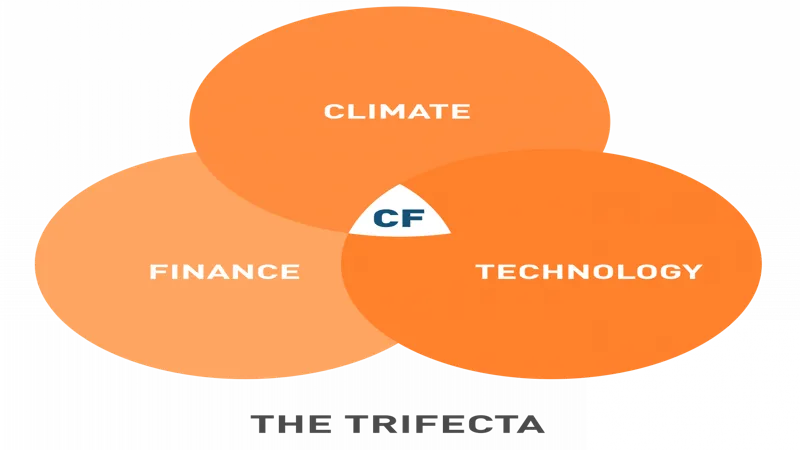In a remarkable shift within the European investment landscape, Germany has ascended to the forefront as the leading destination for climate-related financial technology start-ups, outpacing the UK for the first time. A recent report by CommerzVentures reveals that investments in climate technology firms across the EU soared to an impressive $1.95 billion in 2024. This development not only highlights Germany’s growing prominence in climate fintech innovations but also signals a competitive transformation in the market, as the UK relinquishes its previous dominance. As we delve deeper into this trend, we explore the implications and opportunities that arise from this pivotal change.
| Country | Investment in Climate Tech (2024) | Notes |
|---|---|---|
| Germany | $1.95 billion | Leading destination for climate fintech investments in Europe. |
| UK | Not specified | Former top position, now surpassed by Germany. |
Germany’s Rise in Climate Fintech Investment
Germany has recently become the top destination for climate-related financial technology start-ups in Europe. This change is exciting because it shows how serious Germany is about fighting climate change through innovative technology. The report from CommerzVentures highlights that Germany attracted a whopping $1.95 billion in investments for climate fintech firms in 2024, making it a leader in the new green economy. This investment surge means more opportunities for businesses focused on sustainable solutions.
The shift in investment to Germany is significant, especially since the UK was once the leader in this sector. Investors are now looking for places where their money can help create positive environmental impacts. With more funding directed toward climate fintech innovations, Germany is paving the way for new technologies that can help reduce carbon footprints and promote sustainability. This trend is important for a healthier planet and a more robust economy.
The Impact of Climate Fintech Innovations
Climate fintech innovations are changing how companies and investors approach environmental challenges. These technologies help businesses track their carbon emissions, find sustainable practices, and manage investments that support green initiatives. For example, apps that calculate the carbon footprint of different products make it easier for consumers to make eco-friendly choices. By investing in these technologies, Germany is not only boosting its economy but also encouraging a shift towards more sustainable practices across Europe.
Moreover, climate fintech innovations can create new jobs and opportunities. As more start-ups emerge in this sector, they need talented individuals who can develop and maintain these technologies. This means young people have exciting career paths in fields like renewable energy, data analysis, and environmental science. Overall, climate fintech is not just about investment; it’s about building a better future for our planet and its people.
Comparing Germany and the UK’s Climate Finance Strategies
Germany and the UK have both made significant strides in climate finance, but their strategies differ. Germany has focused heavily on integrating technology with environmental goals, leading to an increase in specialized start-ups. This proactive approach attracts international investors who are keen to support green innovations. On the other hand, the UK has faced challenges that have impacted its position, potentially due to changes in policy or focus away from sustainable technologies.
Understanding these differences can help other countries learn from Germany’s success and the UK’s setbacks. By analyzing what works and what doesn’t, nations can develop better strategies for attracting investments in climate fintech. This competitive landscape encourages countries to innovate and collaborate, ultimately benefiting the global fight against climate change. Lessons from both countries are crucial for shaping a sustainable future.
The Role of Investment Reports in Climate Finance
Investment reports, like the one from CommerzVentures, play a crucial role in understanding market trends in climate finance. They provide valuable insights into where and how money is being invested in climate-related technologies. For example, these reports can show investors which sectors are growing and which are struggling. This information not only helps businesses but also guides policymakers in creating supportive environments for green innovations.
Additionally, these reports can raise awareness among the general public about the importance of investing in sustainable technologies. When people see the impressive numbers behind climate fintech investments, they may be inspired to support eco-friendly products and companies. This ripple effect can lead to a more informed society that actively participates in the fight against climate change, making investment reports a vital tool in promoting sustainability.
Future Trends in Climate Fintech Investments
As we look to the future, several trends in climate fintech investments are emerging. One major trend is the increasing use of artificial intelligence and data analytics to enhance sustainability efforts. These technologies can help businesses optimize their operations by reducing waste and improving energy efficiency. This means that not only will investments grow, but they will also become smarter, leading to even more significant environmental benefits.
Another trend to watch is the rise of community-focused climate fintech solutions. Start-ups are beginning to develop platforms that allow individuals to invest in local sustainability projects. This grassroots approach empowers communities and encourages people to take an active role in protecting their environment. By combining technology with local initiatives, these investments can create strong, eco-friendly communities that contribute to the global climate efforts.
Frequently Asked Questions
Why is Germany becoming the top destination for climate fintech investments?
Germany has become Europe’s leading spot for climate fintech because it attracts significant investments, reaching $1.95 billion in 2024, highlighting its strong focus on climate-related technologies.
What are climate-related financial technology start-ups?
Climate-related financial technology start-ups develop innovations to address climate change, including sustainable investments and eco-friendly financial solutions that help businesses and consumers make greener choices.
How much investment did climate technology firms receive in 2024?
In 2024, climate technology firms in the EU received a total of $1.95 billion, showcasing a growing interest in sustainable financial innovations.
What does this shift in investment mean for the UK?
The UK has lost its top position in climate fintech investments, indicating a competitive shift within Europe, which may affect its future investment opportunities in this sector.
What is CommerzVentures, and why is it important?
CommerzVentures is a venture capital firm that reported on the rising investments in climate fintech. Their insights help track financial trends and support understanding of market shifts.
How can climate fintech innovations help the environment?
Climate fintech innovations help by promoting sustainable investments and reducing carbon footprints, allowing individuals and businesses to make environmentally friendly financial choices.
What are the implications of Germany’s leadership in climate finance?
Germany’s leadership in climate finance may encourage more investments in green technologies across Europe, driving innovation and supporting the global fight against climate change.
Summary
Germany has become the top choice in Europe for investing in climate-related financial technology start-ups, overtaking the UK for the first time. A report by CommerzVentures reveals that investments in climate tech firms in the EU reached an impressive $1.95 billion in 2024. This change highlights Germany’s growing importance in attracting funds for climate fintech innovations, while the UK has fallen from its previous leading position. Overall, this shift shows a competitive change in the European market for climate finance, emphasizing the rise of Germany in this vital sector.



